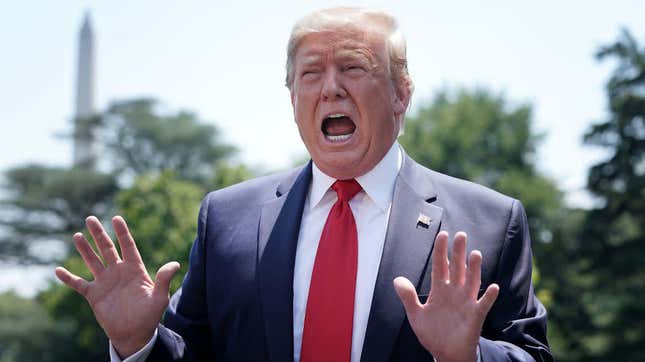
If Donald Trump wants a shot at appearing on California’s presidential primary ballot, he’ll have to pony up his tax returns.
California Gov. Gavin Newsom signed legislation, effectively immediately, that mandates that presidential candidates can’t appear on California’s primary ballot unless they’ve submitted five years of their tax returns, the Los Angeles Times reports. Candidates for governor have the same requirements under the new law.
The legislation doesn’t specifically name Trump, who has officially launched his re-election campaign, but he has steadfastly refused to release his returns.
In signing the bill into law, Newsom said such financials are key to restoring and ensuring the public’s confidence in their elected officials.
“These are extraordinary times and states have a legal and moral duty to do everything in their power to ensure leaders seeking the highest offices meet minimal standards and to restore public confidence,” the governor said in a statement. “The disclosure required by this bill will shed light on conflicts of interest, self-dealing, or influence from domestic and foreign business interest.”
Interestingly, the new law does not appear to stop candidates who refuse to submit their returns from appearing on the general election ballot, according to the Times.
However, Newsom has been a vocal critic of Trump’s refusal to make his tax returns public. And this move—approved in the California Legislature along strict party lines—is sure to stir controversy and likely be challenged in court.
As Tim Murtagh, communications director for Trump’s re-election campaign, told the Times:
“The Constitution is clear on the qualifications for someone to serve as president and states cannot add additional requirements on their own. The bill also violates the First Amendment right of association, since California can’t tell political parties which candidates their members can or cannot vote for in a primary election.”
The issue also, as the Times explains, raises questions about whether states have the right to decide whose names appear on the ballot for president:
“I’m sure it’ll be challenged, but I have no confidence in predicting what the courts are going to do,” said Richard L. Hasen, a UC Irvine election law professor.
One likely courtroom argument was provided by California’s last governor. Brown vetoed a similar bill in 2017, arguing it was unlikely to pass constitutional muster and would set a bad precedent.
“Today we require tax returns, but what would be next?” Brown wrote in his veto message. “Five years of health records? A certified birth certificate? High school report cards? And will these requirements vary depending on which political party is in power?”

